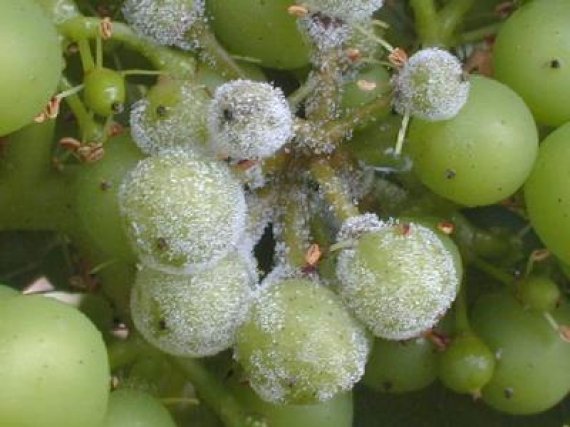Photo: grapes with mildew
The new biological fungicide needs to be effective, safe for humans and the environment, easy to produce and store, and of course it also has to be cheap.
The research is part of the EU Biocomes project, which started recently. Biocomes has received nine million euros from the EU to develop eleven biological crop protection methods. These are insects, nematodes, bacteria, fungi and viruses that could act as antagonists to damaging pests and pathogens. The Wageningen project is focusing exclusively on mildew.
Bayer
Three years ago, Jürgen Köhl developed a method to select the most promising biological crop protection fungicides from hundreds of fungi. He has already used this method successfully to find a biological fungicide to combat apple scab, a fungal disease like mildew. Now he will be looking for fungi to deal with mildew. Once biological fungicides for mildew have been found, they will be tested in experimental fields in Lelystad and Sweden.
In this project, PRI is collaborating with Bayer Crop Science Biologics and Agro Plantarum in Sweden, among others. However, DLO is the lead party for the EU project. ‘You are taking a risk then,’ says Köhl, ‘because you invest a lot of time in the project proposal but you don’t know whether you will get the funding. But PRI has to serve as the lead party occasionally in order to remain in the picture in the European research scene. Anyway, it’s fun coordinating the project.’ The project is providing PRI with 1.4 million euros over a period of four years. That funding is not just for research but also for coordination and communication.

